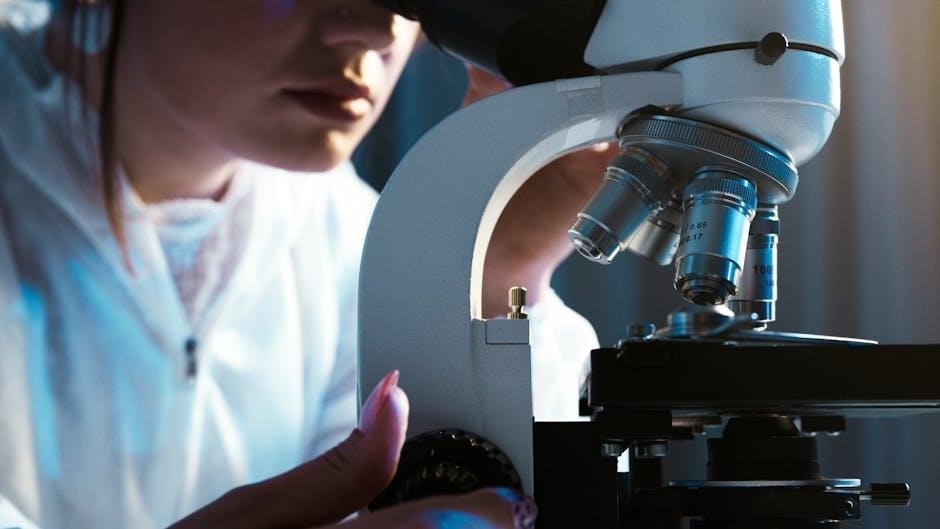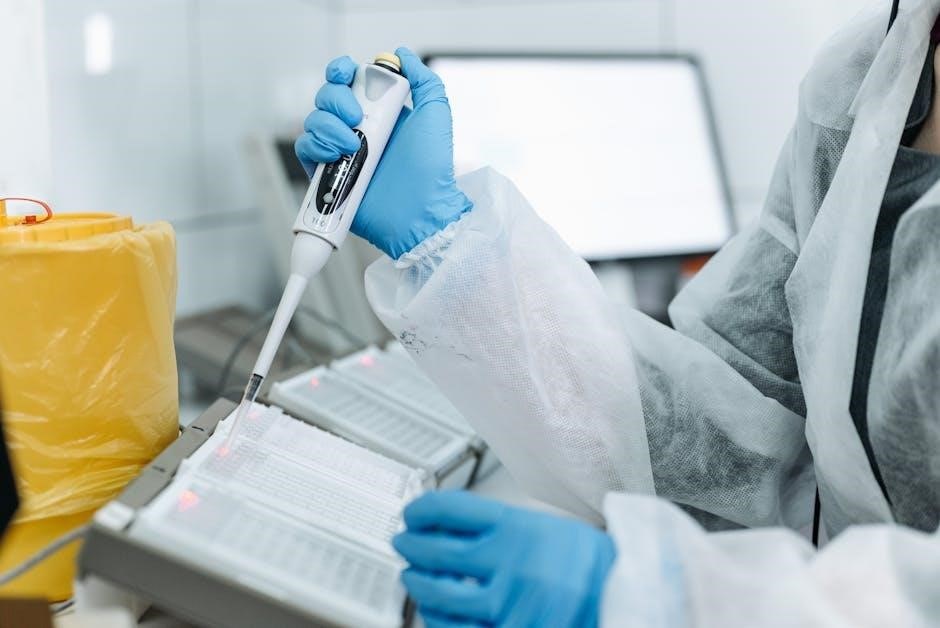ACT Science Practice Test 4 PDF: A Comprehensive Guide
Are you preparing for the ACT Science test? This comprehensive guide introduces the ACT Science Practice Test 4 PDF, a valuable resource for effective test preparation. This resource offers practice with questions covering data representation, research summaries, and conflicting viewpoints.
Embarking on the journey of ACT preparation can be daunting, particularly when tackling the Science section. The ACT Science Practice Test 4 serves as an invaluable tool, offering a realistic simulation of the actual exam. This practice test, readily available in PDF format, allows students to familiarize themselves with the test’s structure, question types, and content areas.

Specifically, Practice Test 4 focuses on assessing critical thinking, reasoning, and problem-solving skills within the natural sciences. With 40 questions to be answered in 35 minutes, time management becomes essential, which you will have to master. By engaging with this practice test, students can identify their strengths and weaknesses, enabling targeted study and improvement.
Furthermore, the availability of answer explanations enhances the learning experience, providing insights into the reasoning behind each correct answer. Whether you’re taking an ACT prep course or studying independently, the ACT Science Practice Test 4 PDF is an indispensable resource for achieving your desired score.
Availability of Free ACT Science Practice Test 4 PDFs

Access to quality ACT preparation materials shouldn’t be a barrier to success. Fortunately, numerous resources offer free ACT Science Practice Test 4 PDFs, making it easier for students to prepare effectively. These PDFs are readily available online, often accompanied by answer keys to facilitate self-assessment.
Several websites and educational platforms provide downloadable versions of Practice Test 4, allowing students to conveniently access and utilize these resources at their own pace. It’s important to note that while these free practice tests can be incredibly helpful, they may not always be the most up-to-date versions. The ACT often recycles test questions, so the same test might be used for a few years before being updated.
Despite this, practicing with older versions can still provide valuable insights into the format and content of the ACT Science section. To ensure you’re using the most relevant materials, consider cross-referencing with official ACT resources and recent test information. By leveraging these free PDFs, students can gain confidence and improve their performance on the ACT Science test.

Content Covered in ACT Science Practice Test 4
The ACT Science Practice Test 4 is designed to assess a student’s scientific reasoning skills rather than specific scientific knowledge. The test presents various passages and scientific information, followed by multiple-choice questions. The content spans various scientific disciplines, including biology, chemistry, physics, and earth science.
A significant portion of the test focuses on data representation, requiring students to interpret information presented in graphs, tables, and charts. Another key area is research summaries, where students must understand and evaluate the design and results of scientific experiments. Additionally, the test includes passages presenting conflicting viewpoints, challenging students to analyze and compare different scientific perspectives.
The questions are designed to evaluate a student’s ability to understand scientific concepts, analyze data, and draw logical conclusions. While some questions may require basic scientific knowledge, the emphasis is on applying reasoning skills to the provided information. Familiarizing yourself with these content areas will help you approach the ACT Science test with confidence.
Format of the ACT Science Test
The ACT Science test is a 35-minute assessment consisting of 40 multiple-choice questions. These questions are distributed across seven passages, each presenting a unique scientific scenario or experiment. The passages fall into three main categories: Data Representation, Research Summaries, and Conflicting Viewpoints.
Data Representation passages typically present scientific data in graphs, tables, and charts. Questions assess your ability to interpret and analyze this visual information. Research Summaries passages describe one or more related experiments. Questions focus on understanding the experimental design, procedures, and results. Conflicting Viewpoints passages present different scientific theories or hypotheses about a phenomenon. Questions require you to compare and contrast these perspectives.
Each question has four possible answer choices, and you must select the best answer based on the information provided in the passage. Calculators are not permitted on the ACT Science test. The test emphasizes scientific reasoning and critical thinking skills rather than rote memorization of scientific facts. Familiarizing yourself with the format and question types will help you manage your time effectively and approach the test with confidence.
Time Management for ACT Science Test 4
Effective time management is crucial for success on the ACT Science test. With 40 questions to answer in just 35 minutes, you have less than a minute per question. Therefore, it’s essential to develop a strategy for pacing yourself throughout the test.
Begin by quickly surveying each passage to assess its difficulty. Some passages may be easier and faster to complete than others. Prioritize tackling the passages you find less challenging first to build momentum and confidence. If you encounter a particularly difficult question, don’t spend too much time on it initially. Instead, mark it and return to it later if time permits.
Practice taking timed practice tests to simulate the actual testing environment. This will help you get a feel for the time constraints and identify areas where you may be struggling. As you practice, experiment with different pacing strategies to find what works best for you. Remember to allocate your time wisely and avoid getting bogged down on any single question. The goal is to answer as many questions correctly as possible within the given time limit.
ACT Science Practice Test 4: Question Types
The ACT Science test assesses your scientific reasoning skills through various question types. Understanding these question types is crucial for effective preparation. A significant portion of the test focuses on data representation, requiring you to interpret information presented in graphs, tables, and charts. You’ll need to analyze trends, identify relationships, and draw conclusions based on the data provided.
Another common question type involves research summaries, where you’re presented with descriptions of scientific experiments and asked to evaluate the experimental design, identify variables, and interpret the results. These questions test your understanding of the scientific method and your ability to analyze experimental data.
Conflicting viewpoints questions present you with different scientific perspectives or hypotheses on a particular phenomenon. You’ll need to compare and contrast these viewpoints, identify their strengths and weaknesses, and determine which viewpoint is best supported by the evidence. In addition to these main question types, you may also encounter questions that test your understanding of scientific concepts and your ability to apply them to new situations. Familiarizing yourself with these various question types will help you approach the ACT Science test with confidence.
Importance of Answer Explanations
Answer explanations are a vital component of your ACT Science test preparation. They provide valuable insights into the reasoning behind each correct answer, helping you understand the underlying scientific concepts and problem-solving strategies. By carefully reviewing answer explanations, you can identify your strengths and weaknesses, pinpoint areas where you need further study, and develop a deeper understanding of the material.
Answer explanations also help you learn from your mistakes. When you get a question wrong, don’t just skip over it. Take the time to read the explanation and understand why your answer was incorrect. This will help you avoid making the same mistake in the future. Furthermore, answer explanations often provide alternative approaches to solving problems, expanding your toolkit of strategies and improving your efficiency on the test.
In addition to explaining the correct answer, good answer explanations also address why the other answer choices are incorrect. This helps you develop a better understanding of the common traps and misconceptions that students fall into. Ultimately, studying answer explanations is an active learning process that reinforces your understanding of the material and improves your test-taking skills.
Accessing Answer Explanations for Practice Test 4
Gaining access to answer explanations for ACT Science Practice Test 4 is crucial for maximizing the benefits of your practice efforts. Several resources offer these explanations, enhancing your understanding and improving your performance. Many websites provide free ACT Science Practice Test 4 PDFs that include answer keys. However, detailed explanations are not always included in the initial PDF.
Dedicated answer explanation PDFs are often available as separate downloads. Look for resources specifically titled “ACT Science Practice Test 4 Answer Explanations PDF Download.” These documents typically offer thorough breakdowns of each question, clarifying the correct answer and the reasoning behind it. Some websites provide professionally-written answer explanations for official ACT practice tests.
The official ACT website and prep books are also valuable sources for answer explanations. The “Preparing for the ACT Test” guide, often available as a free PDF download, includes a full-length science test with answer explanations. Be sure to check the publication date to ensure the explanations align with the specific practice test you are using. Accessing these resources will provide you with the insights needed to improve your understanding and skills.
Utilizing Practice Test 4 for Effective Preparation
To effectively prepare for the ACT Science test, Practice Test 4 should be used strategically. Begin by taking the test under timed conditions to simulate the actual testing environment. This will help you gauge your current performance level and identify areas for improvement. After completing the test, review your answers and carefully analyze the answer explanations. Understanding why you missed a question is just as important as getting it right.
Focus on the types of questions you consistently struggle with, such as data representation, research summaries, or conflicting viewpoints. Devote extra time to reviewing the scientific concepts and reasoning skills required for these questions. Use the practice test as a tool for targeted study, focusing on the areas where you need the most improvement. Also, pay attention to the format of the questions and the types of passages used in the test. Familiarizing yourself with these elements will help you approach the actual test with confidence.
Regularly review your progress and adjust your study plan as needed. By utilizing Practice Test 4 in a focused and deliberate manner, you can maximize your preparation and increase your chances of success on the ACT Science test.
Taking the Practice Test in a Simulated Environment
To maximize the benefits of ACT Science Practice Test 4, it is crucial to replicate the actual testing environment as closely as possible. Find a quiet space where you will not be disturbed for the entire 35-minute duration of the test. Remove all distractions, such as cell phones, books, and notes. Use a timer to keep track of your time and adhere to the strict time limit.
Simulate the physical conditions of the test center by sitting at a desk or table with adequate lighting. Avoid using any electronic devices or calculators unless they are permitted on the actual ACT Science test. Follow the instructions provided in the practice test and answer the questions to the best of your ability.
By creating a realistic testing environment, you can familiarize yourself with the pressure and time constraints of the actual ACT Science test. This will help you develop effective time management strategies and improve your ability to focus and perform under pressure. After completing the practice test, take time to reflect on your experience and identify areas where you can improve your test-taking skills.
Scoring and Analysis of ACT Science Practice Test 4
After completing ACT Science Practice Test 4, scoring and thorough analysis are crucial steps in your preparation. Use the answer key provided to check your answers and calculate your raw score, which is simply the number of questions you answered correctly. Then, convert your raw score to a scaled score using the conversion chart included with the practice test. This scaled score provides an estimate of how you would perform on the actual ACT Science test.
Beyond scoring, a detailed analysis of your performance is essential. Identify the types of questions you struggled with, such as data representation, research summaries, or conflicting viewpoints. Review the answer explanations for each question, even those you answered correctly, to gain a deeper understanding of the underlying scientific concepts and reasoning skills.
Pay attention to patterns in your mistakes. Did you consistently misinterpret graphs or tables? Were you confused by certain scientific terms or concepts? Use this information to focus your studying on areas where you need the most improvement. By carefully analyzing your performance on ACT Science Practice Test 4, you can identify your strengths and weaknesses and tailor your preparation accordingly.
Benefits of Using Official ACT Practice Tests
Utilizing official ACT practice tests, like ACT Science Practice Test 4, offers numerous advantages for effective test preparation. These tests provide an authentic representation of the actual ACT exam, including the format, question types, and difficulty level. By practicing with official materials, you can familiarize yourself with the test’s structure and gain confidence in your ability to perform well under timed conditions.
One of the key benefits of official practice tests is their accuracy in replicating the content covered on the ACT Science section. The questions are designed to assess your understanding of scientific reasoning skills, data interpretation, and experimental analysis, just as the real exam does. This allows you to identify your strengths and weaknesses in specific areas and focus your studying accordingly.
Furthermore, official ACT practice tests come with detailed answer explanations, which are invaluable for understanding the reasoning behind each correct answer. These explanations help you learn from your mistakes and develop a deeper understanding of the scientific concepts being tested. By using official practice tests, you can ensure that you are preparing with the most accurate and relevant materials available, maximizing your chances of success on the ACT Science test.
Where to Find More ACT Science Practice Resources

To further enhance your ACT Science preparation beyond Practice Test 4, a multitude of resources are available. Official ACT publications are an excellent starting point, offering authentic practice tests and comprehensive guides. The ACT website provides access to previously released exams, allowing you to simulate test conditions and assess your progress.
Numerous online platforms offer ACT Science practice questions and full-length tests. These resources often include detailed answer explanations and personalized score reports, helping you identify areas for improvement. Websites dedicated to test preparation, such as Kaplan and Princeton Review, provide a wealth of practice materials and study guides tailored to the ACT Science section.
Additionally, consider exploring educational websites and forums where students share their experiences and insights on ACT preparation. These platforms can offer valuable tips, strategies, and recommendations for effective studying. Don’t overlook the resources available at your school or local library, such as textbooks, study guides, and tutoring services. By utilizing a variety of resources, you can create a well-rounded and effective study plan to maximize your performance on the ACT Science test. Remember to focus on understanding the underlying scientific concepts and developing your critical thinking skills.
